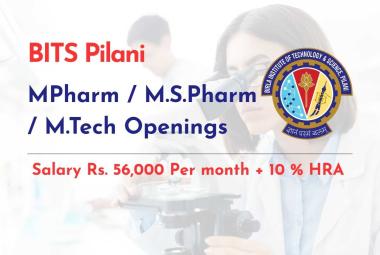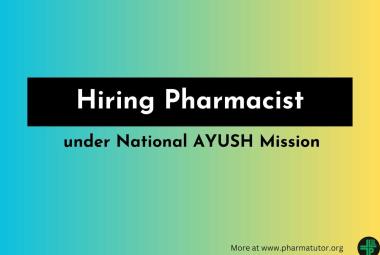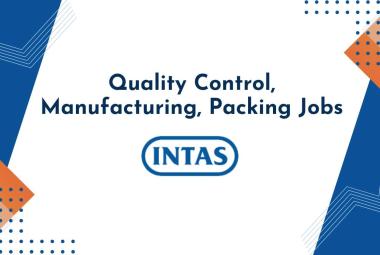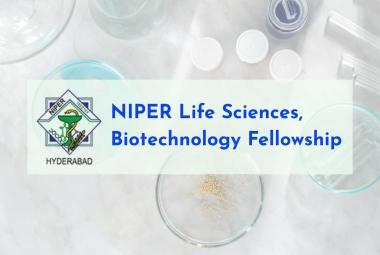 About Authors:
About Authors:
Pushpendra Kumar Patel*, Narendra Prajapati , Jyoti Sahu
M. Pharma, T.I.T. College of Pharmacy,
Bhopal,
M.P. India
Abstract
It is a very well accepted fact that food, cloth and shelter are essential stuff for human beings, but the real fact behind these are only to achieve good health , so that one can survive and enjoy the charm of god gifted life. As the health is prime importance than any of others, so it’s novel responsibility of that person to keep the world healthy, and that person is proudly called as health care professional, Dr. and pharmacist both comes under it, but the pharmacist is the base of health care profession. A person who is directly and actively involved in the life cycle of medicine. It concludes study from new entity to its elimination. Simply the person deals with biochemical mechanism of action of drug, drugs therapeutic role, side effect, potential interaction, and monitoring parameter.
[adsense:336x280:8701650588]
Reference Id: PHARMATUTOR-ART-1204
Introduction
Present generation is a generation of the fast growing children and youth. They want to move as fast as possible and to earn money because this is matter to them. Before few years ago we were not so much option for the carrier point of view, we had to choose from limited option, like bachelor degree from science, mathematics, arts, comers or physiology and few more. But now a days there are several option for the child to choose their subject, like professional course in medical B.E, MBA, M. Tech, Pharmacy and many more. The first choice for any of bio background student is to
Become a Doctor, but few of them got selected in the entrance exam and rest of them diverts their way. Mostly do B.sc and other jump for anything else. But most of them are not aware of pharmacy. The pharmacy is a course which is not much in light, but one has to bring in the focus so that the student may have another good carrier option and they can be prevented to become a hopeless student.
Pharmacy is course which deals with the study of medicine and all related information about this like what is the drug what is medicine and how it is made and what happen when we take it, how does it work and most importantly how we get well after being treated with medicine. Most of us focus all of our attention to be a doctor but no want to be a pharmacist, even after an interesting fact that the doctor gets the information about medicine from the pharmacist only. After passing the 12th class with any of discipline either biology or mathematics the student can choose their carrier as a pharmacist.
What have to do is they have to appear for the common entrance test called the PPHT that is pre pharmacy test, which include the basic question from physic, chemistry and math’s/bio ( as per their option) and after securing a good percentile thy got selected for the pharmacy profession.
Pharmacy is the science dealing with collection, preparation, and standardization of drugs. Pharmacists, who must earn a qualifying degree, prepare and dispense prescribed medications. They formerly mixed and measured drug products from raw materials according to doctors' prescriptions, and are still responsible for formulating, storing, and providing correct dosages of medicines, now usually produced by pharmaceutical companies as pre-measured tablets or capsules. They also advise patients on the use of both prescription and over-the-counter drugs. Laws regulating the pharmaceutical industry are based on the national pharmacopoeia (in the U.S., the U.S. Pharmacopoeia or USP), which outlines the purity and dosages of numerous medicinal products.
There are several misconceptions behind pharmacy as that after being pharmacist there are limited of job opportunity, but one have to come to know that there are several of opportunity waiting for them.
Why pharmacy as a career?
Pharmacists are considered one of the most visible and one of the most accessible health care professionals in the world. Every day, millions of Americans walk into drug stores and depend on pharmacists for assistance and advice for their health care needs. Pharmacists are trusted to help you with some of your most personal concerns and are trusted to help you. Pharmacists are regarded as one of the most trusted professions in the world. Pharmacy has always been an exciting and rewarding career, but has recently become on the most pursued fields in the health care industry.
Types of Pharmacy course
Based on the duration of course there are mostly three type of pharmacy courses are available
1. Diploma in pharmacy
2. Degree in Pharmacy
3. Master in Pharmacy
Diploma in Pharmacy
Diploma in Pharmacy is a two year basic course which include the principal and general study about the pharmacy related subject and other relevant topic like chemistry and little mathematics, which are used in measurement process. After the completion of Diploma you have to register yourself to the state pharmacy council to become a registered pharmacist.
Bachelor of Pharmacy
Bachelor of Pharmacy is a 4 year course mostly conducted as semester wise, so we can say that it is a 8 semester exam, each semester is of 6 month duration approximately. Each semester is a set of 5 subjects (may differ in other state) and all are relevant to basic needs of pharmacy. The first semester contain remedial mathematics, general formula to calculate the dosage and other, mathematics is for those students who come from biology discipline and for those who belongs to math’s group have to study the basic biology. It is done because they may get familiar with the respective subject. Other subjects are inorganic, organic chemistry, pharmacognosy (botany) and Anatomy, physiology and health education. The next semester are having different subject like computer application and medicinal chemistry and pharmacology, but few subject are repeated as advance.
Master in Pharmacy
After successfully completion of B. Pharma one can move to the PG degree that is post graduation. Pharmacy has several post graduation discipline, to provide better future aspect and student can chose any of them as per their entrust.
How to get admission in M. Pharma
To get admission in PG course that is called master in Pharmacy, one have to appear in the national level entrance test called GAPT, stand for graduate aptitude pharmacy test, few year ago it was known as a GAT test. Unfortunately if you can’t qualify for the GPAT exam, not to worry about, there are several other test are also conducted for student, either university level or state level, like the RGPV conduct a exam and also arrange a on line counseling for both GPAT and non GPAT student. Like it there is several other universities too. One has to be in touch with the official website of university.
Branches for M. pharmacy
There are so many branches in pharmacy, out of which core and important branches are as follows-
* Pharmaceutics
* Pharmacology
* Pharma chemistry (Medichem)
* Pharmaceutical Analysis
* Pharmacognosy
* P’Biotechnology
* Quality Assurance
All branches are equally important but before selecting them be sure and have some suggestion from related faculties from your colleges.
Scope of pharmacy
Pharmacists work in a number of different settings to include retail, hospitals, clinics, home health care facilities, home infusion facilities, long-term care facilities, managed care facilities, Armed Services, mail service, internet companies, public health service, veterans administration, local, state, and federal government, association management, community pharmacy, consultant pharmacy, pharmaceutical sales and marketing, drug research and development, managed care, universities and numerous other settings.
The scope of Pharmacy not ends with the above statements, its more than we expect, the good and innovative thing with pharmacy is what that we can feel proud to be a pharmacist as we can serve the family, society, nation and even the world. As in Indian mythology and human behavior there is no such great work to serve the society. Once you do a little but most important thing you will start loving your profession, and there is nothing as loving your carrier. Once you have done your PG course you can do MBA in Hospital management or the industrial management if you are interested as it will bring you the solid job opportunity in industrial sector as a GM or AGM, that will give you extra bonus, and you can enjoy with your life style.
Patient counseling is another emerging and most healthy job for the pharmacist. As the pharmacist you have to do is what just communicate between the Dr. and patent, mostly it is seen that Dr. do mistake regarding the prescription writing, so your duty is to check the prescription of that particular patent, either that is ok or it has some interaction or
Contraindication or any of adverse drug reaction possibility with that, if so than you may ask the Dr. for re write the prescription. As doing that you can perform two task simultaneously-
* First you can save the patient life
* Second you can earn money
* Above all you can get satisfaction that you have done something good, even better.
What do pharmacists do?
On a daily basis, many pharmacists dispense medications to patients in accordance with doctor's orders and consult patients on medication usage and contraindications. Pharmacists communicate directly with physicians in order to correctly deliver medications. Many pharmacists consult patients on over the counter medications and provide information on home health care supplies and various other health care products. Many pharmacists manage and controlling the environment of the store or facility. Some pharmacies provide services that are not related to health care, such as mail and package delivery, key cutting, soda fountains, delis, and movie rentals. Many pharmacies provide specialized services associated with your traditional corner drug store pharmacy. Pharmacist can provide specialized services according to the specific area they are specialized. Some pharmacists specialize in psychiatric disorders, intravenous nutrition support, oncology, nuclear pharmacy, and pharmacotherapy.
Pharmacists distribute prescription drugs to individuals. They also advise their patients, physicians, and other health practitioners on the selection, dosages, interactions, and side effects of medications, as well as monitor the health and progress of those patients to ensure that they are using their medications safely and effectively.
Compounding- the actual mixing of ingredients to form medications is a small part of a pharmacist's practice, because most medicines are produced by pharmaceutical companies in standard dosages and drug delivery forms. Most pharmacists work in a community setting, such as a retail drugstore, or in a healthcare facility, such as a hospital.
Pharmacists in community pharmacies dispense medications, counsel patients on the use of prescription and over-the-counter medications, and advise physicians about medication therapy. They also advise patients about general health topics, such as diet, exercise, and stress management, and provide information on products, such as durable medical equipment or home healthcare supplies. In addition, they often complete third-party insurance forms and other paperwork. Those who own or manage community pharmacies may sell non-health-related merchandise, hire and supervise personnel, and oversee the general operation of the pharmacy. Some community pharmacists provide specialized services to help patients with conditions such as diabetes, asthma, smoking cessation, or high blood pressure. Some pharmacists are trained to administer vaccinations.
Pharmacists in healthcare facilities dispense medications and advise the medical staff on the selection and effects of drugs. They may make sterile solutions to be administered intravenously. They also plan, monitor, and evaluate drug programs or regimens. They may counsel hospitalized patients on the use of drugs before the patients are discharged.
Some pharmacists specialize in specific drug therapy areas, such as intravenous nutrition support, oncology (cancer), nuclear pharmacy (used for chemotherapy), geriatric pharmacy, and psychiatric pharmacy (the use of drugs to treat mental disorders).
[adsense:468x15:2204050025]
Pharmacy Sector in India
Pharmacy education, profession and practice in India are regulated by the Pharmacy Act 1948.Provisionsof the act are implemented through the Pharmacy Council of India (PCI) while State Pharmacy Councils have been constituted for the purpose of registration of pharmacists and regulation of pharmacy practice. Pharmacy education is regulated by the PCI as well as the All India Council for Technical Education (AICTE) established under the AICTE Act 1987. Besides, pharmacy practice is also governed by Drugs and Cosmetics Act 1940 together with Drugs and Cosmetics
Rules 1945 (framed under the act). The Indian Medicine and Homeopathy Pharmacy Bill 2005currently pending in the parliament will regulate dispensing by AYUSH practitioners in future. Pharmacy education especially bachelor and higher studies have industrial leaning. The quality of education offered by pharmacy institutions in the country varies widely. Further, most of the institutions are away from practice environment resulting into graduates lacking in skills needed for industry, hospitals or in community setting .The need for continuing pharmacy education on the lines of continuing professional development has been widely advocated by the stakeholders. However the current regulation does not mandate such knowledge/skill updating as prerequisite for continuing practice. Nor there exist any system by which such CPE can b e undertaken regularly.
Areas of Pharmacy Profession
The spectrum of pharmacy profession in India is very wide. It covers opportunities in pharmaceutical industry manufacturing & retail, healthcare sector, pharmacy education, and regulatory bodies. While more than 98% of individuals with D Pharma degree are mainly engaged in dispensing medicine at retail or hospital pharmacies, those with B Pharma or higher degree have a variety of opportunities to choose from. Most of the students confuse what to do after B. Pharma and even after Master degree in pharmacy they can’t decide where they want to go, which place will be suitable for them and how they will adjust themselves there. The question has single but very effective answer, and that is to listen to your mind, and analyze your capability, capacity, and the active strong point, weather you will be comfortable with the industrial job which will engaged you at night shift also, or you have dare enough to teach the student of college and university. Don’t take any decision in hurry, and have an advice from your well known teachers or any other person who is belong to the pharmacy field. And another important thing which has to keep in mind is that take a job profile before joining any of the organization, so you can adjust yourself with atmosphere and act accordingly. Some of these areas are given below, just see them and analyze yourself to find out the right answer.
|
Research and development |
|
Chemist, pharmacologist |
|
Involve in the new drug |
|
Discovery, process development |
|
Formulation development |
|
Clinical trial |
|
Bioequivalence study |
|
Toxicological studies |
|
Government sector |
|
Railway |
|
Hospital |
|
Power plant |
|
Drug inspector |
|
Member of family welfare committee |
|
Production and manufacturing |
|
Tablet, capsule, ointment, syrup, |
|
suspension and many other dosage form |
|
Quality assurance |
|
Quality control |
|
Production in charge |
|
Marketing |
|
Medical representative |
|
Trainer of MR |
|
Area manager |
|
Regional manager |
Conclusion-
The pharmacists are part of society. Knowing their role to keep the people healthy. It will not be justice to bind them with a particular field they have a large area to work with. They are important for people to communicate with, educate them about the safety and harm about the medicine they are taking. As the Dr. Feel their job is over, same point the pharmacist feels lucky to serve the society till the person become healthy and happy again. Provide wealthy communication with the need full.
Few jobs are started to be end, but the job of a pharmacist never ends, it continues and continue. Providing the good heath to society is not a job only but is attachment with the feeling of a man with another. Pharmacist is one of the important parts of society and the world. The Dr. Give life with medicine, but Pharmacist gives life to medicine. They have a clear motto “Make the people healthy so they can Live Happy”
References-
1. Human Resources for,Pharmacy Sector in Indi A report by Advent Healthcare Group, New Delhi
2. A Situational Analysis of Human Resource Issues in the Pharmacy Profession in Canada. Human Resources Development Canada, 2001. Accessed 15 July 2011.
3. MedScape News, Preceptors' Perspectives on Benefits of Precepting Student Pharmacists, accessed 15 July 2011.
4. World Health Organization. Classifying health workers. Geneva, 2010.
5. US Bureau of Labor Statistics. Occupational Outlook Handbook, 2010-11 Edition -"Pharmacists". Accessed 14 July 2011.
6. Canadian Pharmacists Association What do Pharmacists do? Accessed 14 July 2011.
7. Royal Pharmaceutical Society of Great Britain. Pharmacist prescribing.
8. Cipolle RJ, Strand LM, Morley PC. Pharmaceutical care practice. 2nd ed. Toronto: McGraw-Hill; 2004.
9. Australian Pharmacy Council. Accessed 14 July 2011.
10. pharmacynews.com.au/article/pressure-on-pharmacists-wages-a-global-trend/503997.aspx Pressure on pharmacists wages
11. beta.guild.org.au/uploadedfiles/wa_branch/services_to_members/pharmacists%20wage%20rates%2021.07.05.pdfPharmacist Wage Rates
12. psa.org.au/site.php?id=121 PSA article
13. pharmacynews.com.au/article/pressure-on-pharmacists-wages-a-global-trend/503997.aspx Pressure on Pharmacists wages a global trend
14. pharmacynews.com.au/article/Slow-start-to-pay-race/520873.aspx Slow start to pay race
15. pharmacynews.com.au/article/Hospital-pharmacy-jobs-under-threat/524670.aspxHospital pharmacy jobs under threat
16. Attaran A, Walker RB. "Shoppers Drug Mart or Poachers Drug Mart?" CMAJ 2008; 178(3) doi: 10.1503/cmaj.071733
17. Titsingh, Isaac. (1834) Annales des empereurs du japon, p. 434.
NOW YOU CAN ALSO PUBLISH YOUR ARTICLE ONLINE.
SUBMIT YOUR ARTICLE/PROJECT AT articles@pharmatutor.org
Subscribe to Pharmatutor Alerts by Email
FIND OUT MORE ARTICLES AT OUR DATABASE









